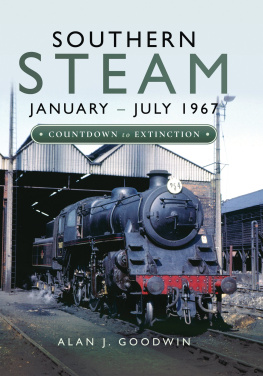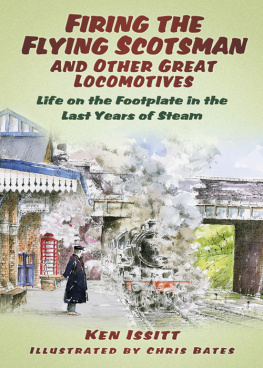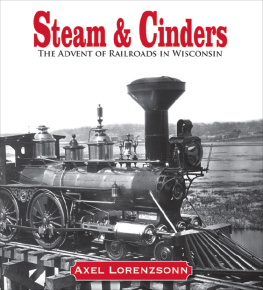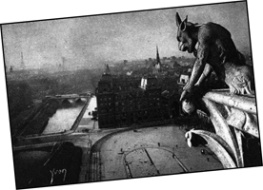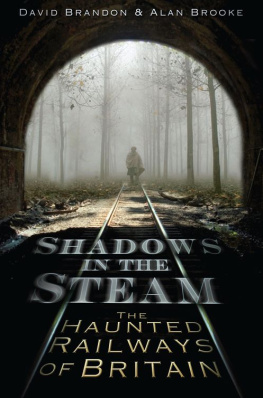
SOUTHERN STEAM JANUARY JULY 1967
SOUTHERN STEAM JANUARY JULY 1967
Countdown to Extinction
Alan J Goodwin
First published in Great Britain in 2018 by
PEN & SWORD TRANSPORT
An imprint of
Pen & Sword Books Ltd
Yorkshire - Philadelphia
Copyright Alan J Goodwin 2018
ISBN 978 1 47389 113 5
eISBN 978 1 47389 115 9
Mobi ISBN 978 1 47389 114 2
The right of Alan J Goodwin to be identified as Author of this work has been asserted by them in accordance with the Copyright, Designs and Patents Act 1988.
A CIP catalogue record for this book is available from the British Library
All rights reserved. No part of this book may be reproduced or transmitted in any form or by any means, electronic or mechanical including photocopying, recording or by any information storage and retrieval system, without permission from the Publisher in writing.
Pen & Sword Books Ltd incorporates the Imprints of Aviation, Atlas, Family History, Fiction, Maritime, Military, Discovery, Politics, History, Archaeology, Select, Wharncliffe Local History, Wharncliffe True Crime, Military Classics, Wharncliffe Transport, Leo Cooper, The Praetorian Press, Remember When, Seaforth Publishing and Frontline Publishing.
For a complete list of Pen & Sword titles please contact
PEN & SWORD BOOKS LTD
47 Church Street, Barnsley, South Yorkshire, S70 2AS, England
E-mail:
Website: www.pen-and-sword.co.uk
Or
PEN AND SWORD BOOKS
1950 Lawrence Rd, Havertown, PA 19083, USA
E-mail:
Website: www.penandswordbooks.com
Introduction
I have to confess to a strong bias towards Southern steam. I was born in Dover in 1951, about as far on the Southern from any other region as you can get. I grew up in a world with an array of different locomotive types: P, C and O1 0-6-0s; pre-grouping 4-4-0s; Brighton built Fairburn tanks; N Class 2-6-0s; King Arthurs; Schools; 4-4-0s and of course Bulleid Pacifics.
My father was an old school friend of one of the running foreman at Dover loco shed. In what must have been the autumn of 1957 we visited the depot and I was given a footplate ride from the shed to the turntable and back on the newly rebuilt Barnstaple. I think that from that moment onwards I was hooked. At around that time the rest of the first fifteen rebuilt West Countries started to appear, with names like Okehampton, Clovelly and Budleigh Salterton that sounded impossibly exotic to a six year old.
Fast forward to the beginning of 1966 when, with a group of friends, I started travelling to London to see what remained of steam; at first just to Waterloo and then further afield when I had the money from the usual schoolboy paper round. Unfortunately, owing to cost and distance, we still only managed a dozen or so trips between then and early May 1967.
Why stop in May? At first there was the small matter of O levels to negotiate, and after these had finished in mid-June I was convinced that nothing much would be happening in the last few weeks little did I know!
On Monday, 5 August 1968, the day after regular steam on British Railways ended, I joined the railway as a Traction Trainee and qualified as a train driver in 1975. I retired in 2011, spending all except five of those forty-three years on the Southern region. Did I happen to mention that I had a leaning towards the Southern?
The year 1967 was just one in a decade of great change. By New Years Eve we had seen alterations to:
International boundaries At the end of the Six Day War, the Israelis had annexed the Golan Heights and the West Bank, a dispute that rumbles on to this day.
Morality (legally at least) The British Parliament voted to decriminalise male homosexuality between consenting adults, and later in the year to allow abortion in certain circumstances.
The way we listen to music - On Monday 14 August the Marine etc. Broadcasting (Offences) act came into force, making pirate radio stations illegal and paving the way for the introduction of BBC Radio One at the end of September. I can vividly recall siting in my friends front room listening to the final hour of Wonderful Radio London and casting aspersions on the government of the day. As the final note of The Beatles A Day in the Life sounded just before three in the afternoon another era came to an end.
Talking of the Beatles, Sergeant Peppers Lonely Hearts Club Band , with its heavy use of strings and sound effects, probably caused a change in the direction of music and paved the way for the progressive rock of the following years.
Deference The Summer of Love hastened the decline in deference to authority and our elders.
Bank Holidays The August Bank Holiday was moved from the first to the last Monday of the month and renamed the Late Summer Bank Holiday.
The pound in our pockets As a result of the widening trade gap, low UK productivity and a sharp rise in unemployment, on 19 November the government devalued the pound by 14%, changing the conversion rate from 1 = $2.8 to $2.4.
And finally, of course, the withdrawal of the last steam locomotives on the Southern Region main line.
A lot has already been written about the final years of Southern steam and indeed there have been other books on the subject this past year. This book is meant to be an accompaniment to the others by contributing detailed information of the final workings. Inevitably there will be some old ground covered, but by concentrating on the final months I hope to keep this to a minimum.
I started this exercise in 1992 to try to complete the matrix of the final week in John Birds Waterloo Sunset supplement in Steam Railway magazine. Later on I thought that it might be interesting to expand that to the four weeks of the interim timetable, and then finally to include what would have been the final week (5 to 11 June), especially as there was so much steam activity on Saturday 10 June: truly steams last weekend fling. I find it interesting now to look back and see just how the railway managed to keep the last steam locomotives going in those final weeks.
So now I have to state that absolutely everything recorded in this book concerning the last five weeks is the result of observations by other people who have kindly given me access to their records. I have cross checked everything as far as possible, but where there are gaps in the workings any mistakes in the detective work are purely mine. As there are still some gaps in the records my research is an ongoing process. If any reader can add or amend any observations please feel free to contact me via the publisher.
Also, I have endeavoured to obtain permission to use or obtain copyright for all the photographs in this book. However, for some of those credited to Authors collection photographer unknown this has not been possible. If anyones pictures have been reproduced without acknowledgement please contact me via the publisher to arrange reimbursement of copyright fee.
C HAPTER O NE
January to March 1967
On Monday 2 January 1967, new locomotive diagrams were issued by the South-Western division of the Southern region (a diagram being the work allocated to a particular locomotive for a day). The Brush Type 4 diesel locomotives gained much more work, including the Bournemouth Belle , and steam was reduced to thirteen diagrammed departures from Waterloo on weekdays, three of which were on the early morning paper trains. All this was unknown to my friends and I however, as we set out from home on that day for a trip to Southampton and Eastleigh shed. As it turned out, we had all the elements of the next six months in one day.
Next page
